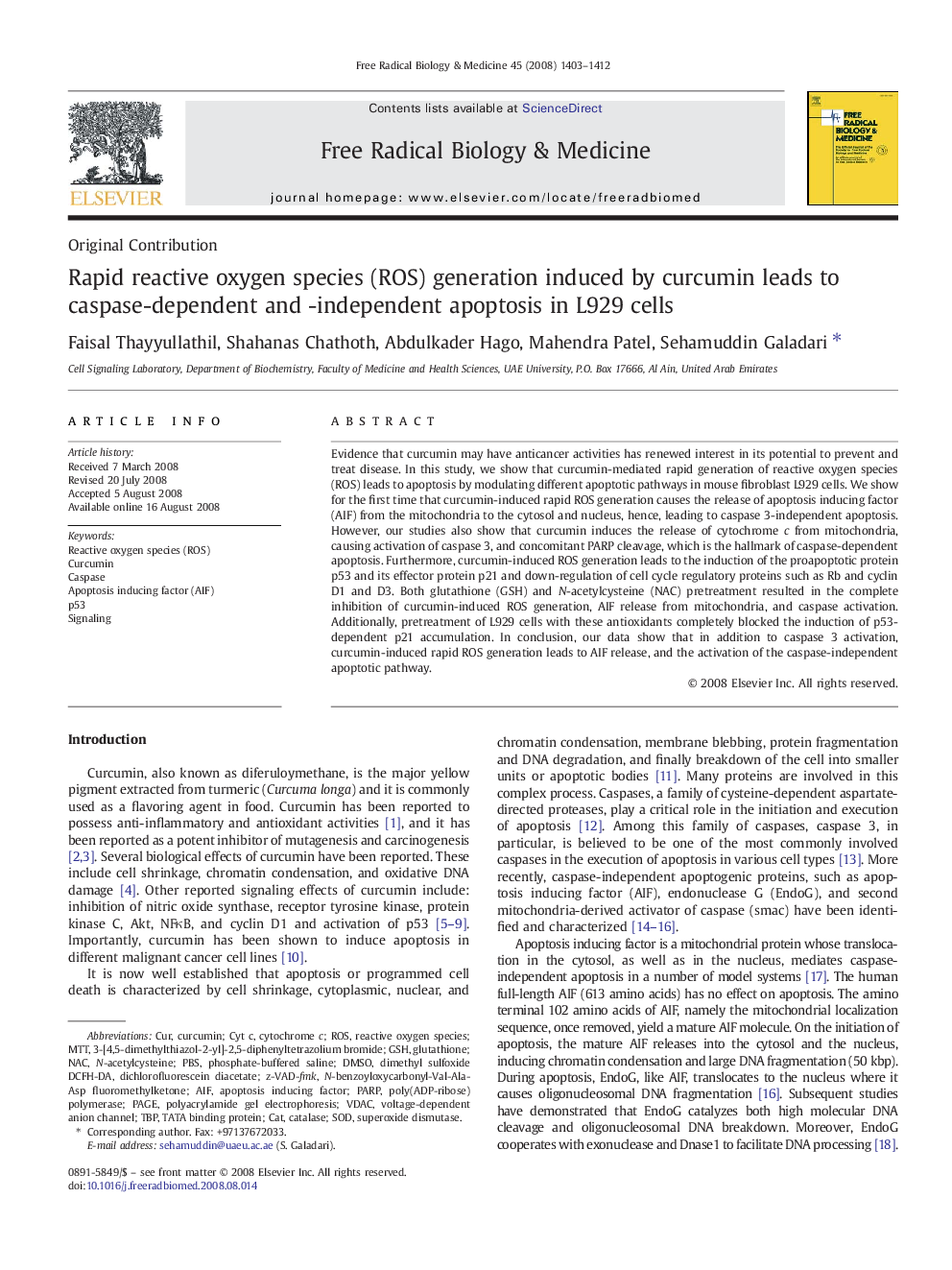| Article ID | Journal | Published Year | Pages | File Type |
|---|---|---|---|---|
| 1910487 | Free Radical Biology and Medicine | 2008 | 10 Pages |
Evidence that curcumin may have anticancer activities has renewed interest in its potential to prevent and treat disease. In this study, we show that curcumin-mediated rapid generation of reactive oxygen species (ROS) leads to apoptosis by modulating different apoptotic pathways in mouse fibroblast L929 cells. We show for the first time that curcumin-induced rapid ROS generation causes the release of apoptosis inducing factor (AIF) from the mitochondria to the cytosol and nucleus, hence, leading to caspase 3-independent apoptosis. However, our studies also show that curcumin induces the release of cytochrome c from mitochondria, causing activation of caspase 3, and concomitant PARP cleavage, which is the hallmark of caspase-dependent apoptosis. Furthermore, curcumin-induced ROS generation leads to the induction of the proapoptotic protein p53 and its effector protein p21 and down-regulation of cell cycle regulatory proteins such as Rb and cyclin D1 and D3. Both glutathione (GSH) and N-acetylcysteine (NAC) pretreatment resulted in the complete inhibition of curcumin-induced ROS generation, AIF release from mitochondria, and caspase activation. Additionally, pretreatment of L929 cells with these antioxidants completely blocked the induction of p53-dependent p21 accumulation. In conclusion, our data show that in addition to caspase 3 activation, curcumin-induced rapid ROS generation leads to AIF release, and the activation of the caspase-independent apoptotic pathway.
